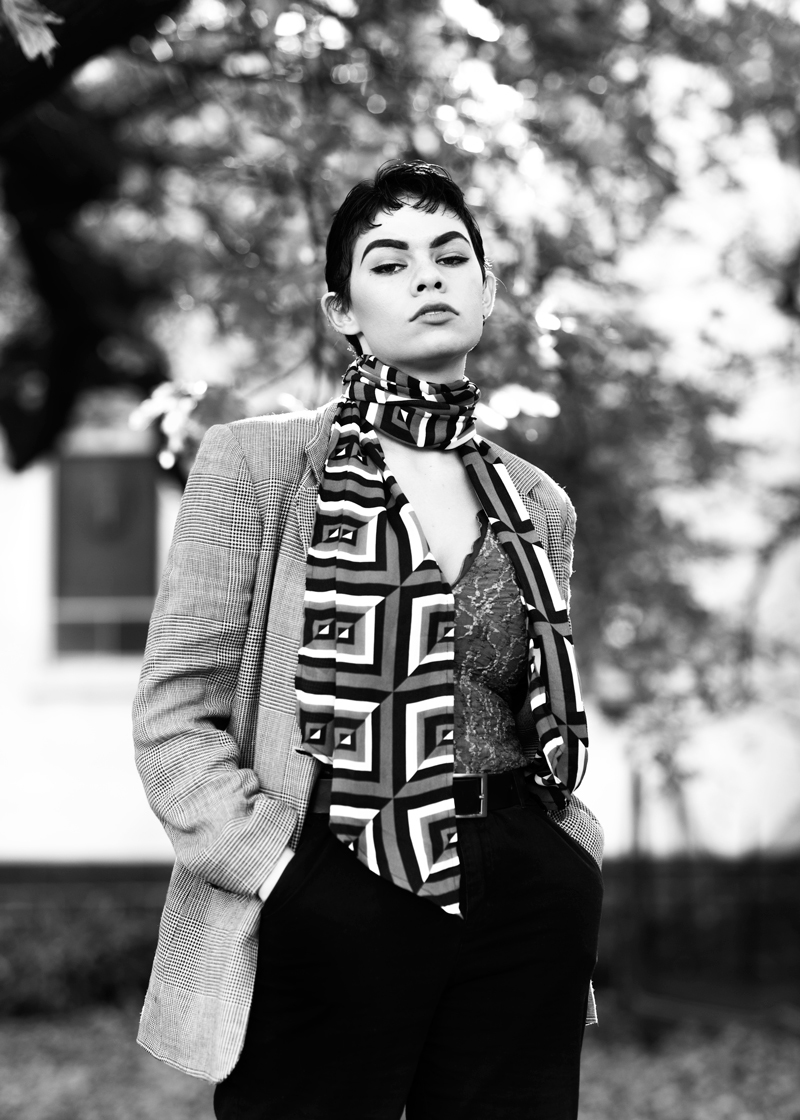Aretha Brown, 16, student
How do you advocate for LGBTIQ+ rights in Australia?
The only way I know how – through education. That said, you can preach the most informative, powerful message, but unless people are listening it doesn’t matter. So as I try to teach others, I also argue that if you want to help the struggle, all you have to do – literally the one thing – is just to sit down, shut the fuck up and listen.
What is the biggest challenge we face?
The whole idea of pitting minorities against each other, both in the queer community and everyone else. Gay vs straight, fem vs butch, politicians vs queers, lesbians vs bisexual women. This divide and conquer complex is so irrelevant to the bigger picture. By creating these “enemies from within” all it ensures is that we remain a distracted community. It dilutes and waters down our main objective. These tiny macroaggressions silence our one key message, making it almost inappropriate, when all I want to see is an end to the systematic and social oppression of the gay community.
Are there any people from LGBTIQ+ Australia’s past that you look up to for their empowerment?
Well here’s the thing, I’m queer, Aboriginal and a woman. So when I try to think of someone who ticks those same boxes, I just can’t. I kind of have to be my own role model sometimes. There were certain people who, without doubt, helped me understand what I was going through better, but never anyone who I could relate to in every single aspect. When I think of the person who kind of really made me appreciate the complexity and beauty that is the LGBTIQ+ community, it was probably my first girlfriend. She was the one that opened me up to my sexuality, I am so grateful.
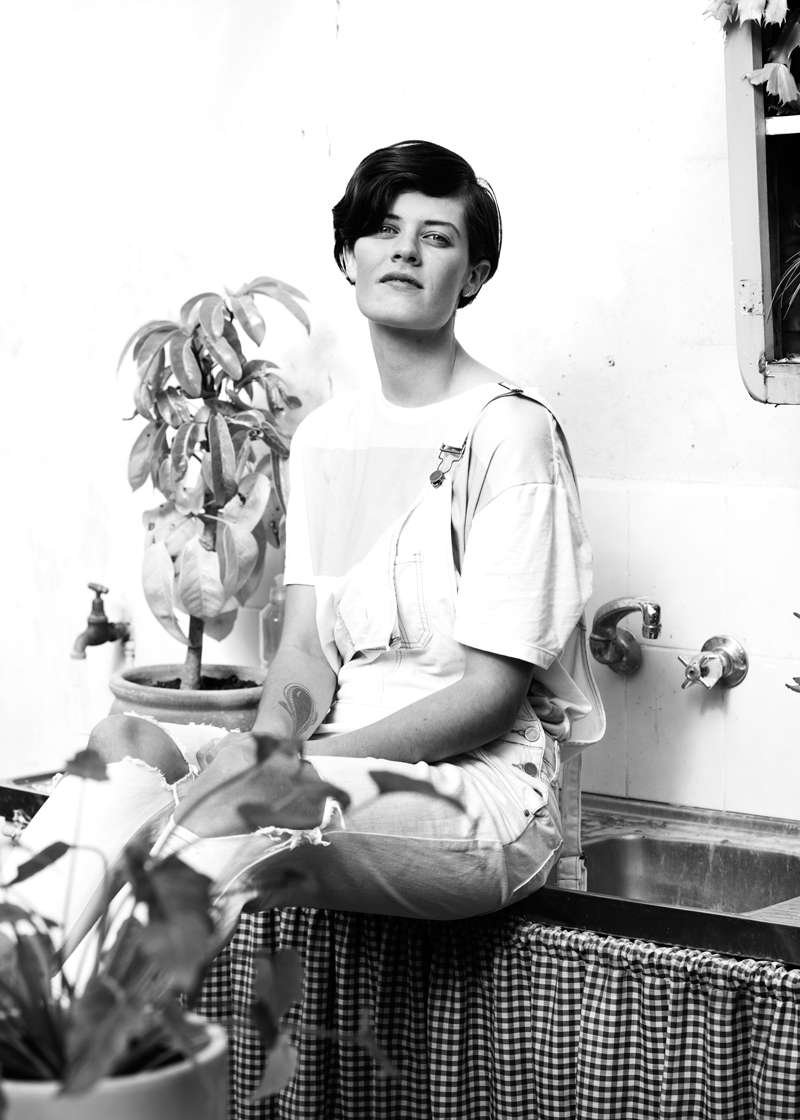
Mill O’Sullivan, 24 , queer non-binary activist
What first inspired you to advocate for LGBTIQ+ rights in Australia?
Ever since I was a kid I rocked my own sense of self – I was big, bold and boisterous. Having that totally squashed out of me by a catholic, gendered, binary driven society was heartbreaking and totally baffling. There were all these rules that didn’t make any sense to me. I didn’t fit into these neat little boxes that dictated your whole experience of the world. Being punished for your authenticity as a child, and then later being persecuted, politicised and probed for simply trying to live with truth, that was the clincher. That’s what propelled me into action.
What are your biggest contributions to the course of LGBTI rights in Australia?
I develop and facilitate workshops and professional development on sexuality and gender, with a key focus on calling in broader communities to become powerful and sustainable allies. As much as I believe in the power and capacity of our community, we can’t do this alone, and nor should it be our responsibility to fight tooth and nail every step of the way.
What must change for an all-inclusive future?
Too many things. There needs to be massive public recognition and discourse around gender diverse people being valid by being backed up by easy access to updating legal and personal documents to reflect our real gender. Transgender people are horrifically pathologized and completely denied bodily autonomy in healthcare. They are denied, on every level, the right to self-determine, and this is directly resulting in the highest rates of suicide of any demographic of people. I think on a human rights scale legal systems, the entire healthcare system, education and most importantly the government need to stop the ongoing sexualisation, persecution and discrimination of my community. Fast. Our identity is not yours. And it is not up to you to say how we fly our flag.
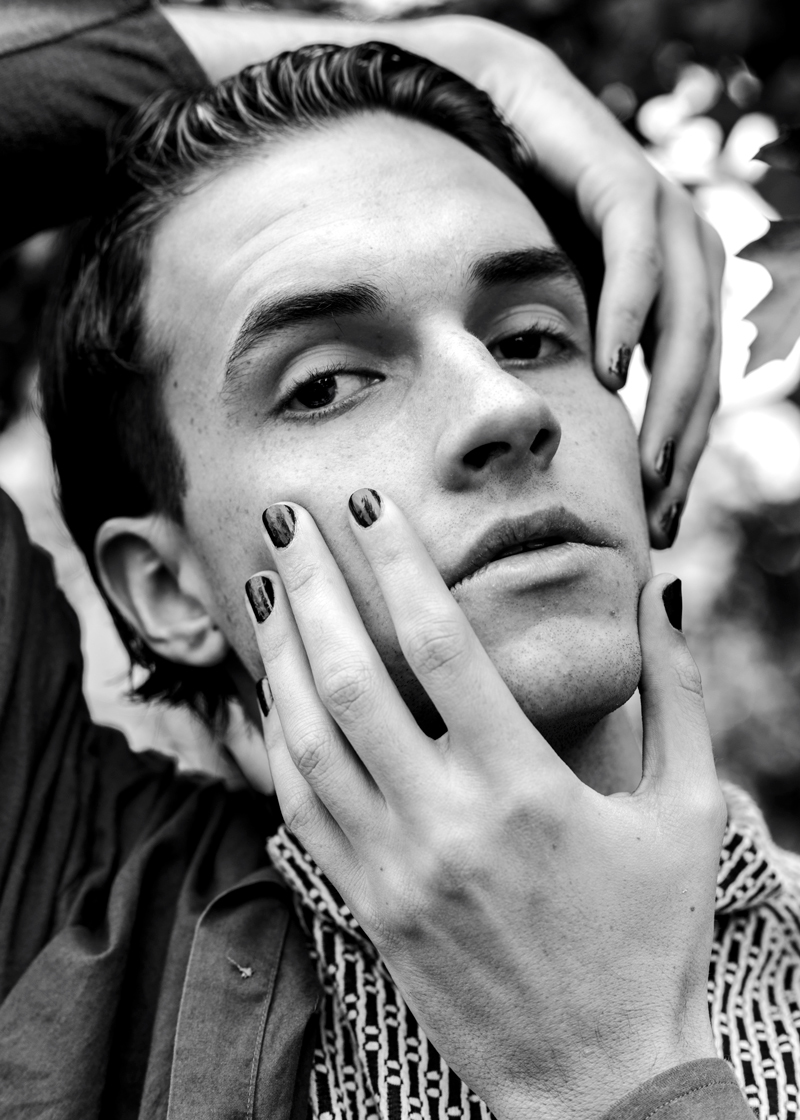
Louis Hanson, 21, writer
When did you begin fighting for LGBTIQ+ rights in Australia?
Growing up, I felt like my voice wasn’t heard. I also noticed there was a lack of representation in both the education system and the media, and this was juxtaposed with the staggeringly high rates of suicide and mental health issues among LGBTQI youth. As someone who’s privileged enough to be able to express their sexuality and opinions freely, I felt it was my duty to become a role model for those who still feel silenced.
What’s the biggest opposition we’re facing?
We need a government that is brave enough to speak for minorities and to move beyond this country’s historically stagnant views. We need greater representation of LBGTQI folk in the media. We need anti-discrimination laws to be embraced. We need Safe Schools to be implemented throughout the country. We need to be teaching our children to embrace, rather than fight, their individuality.
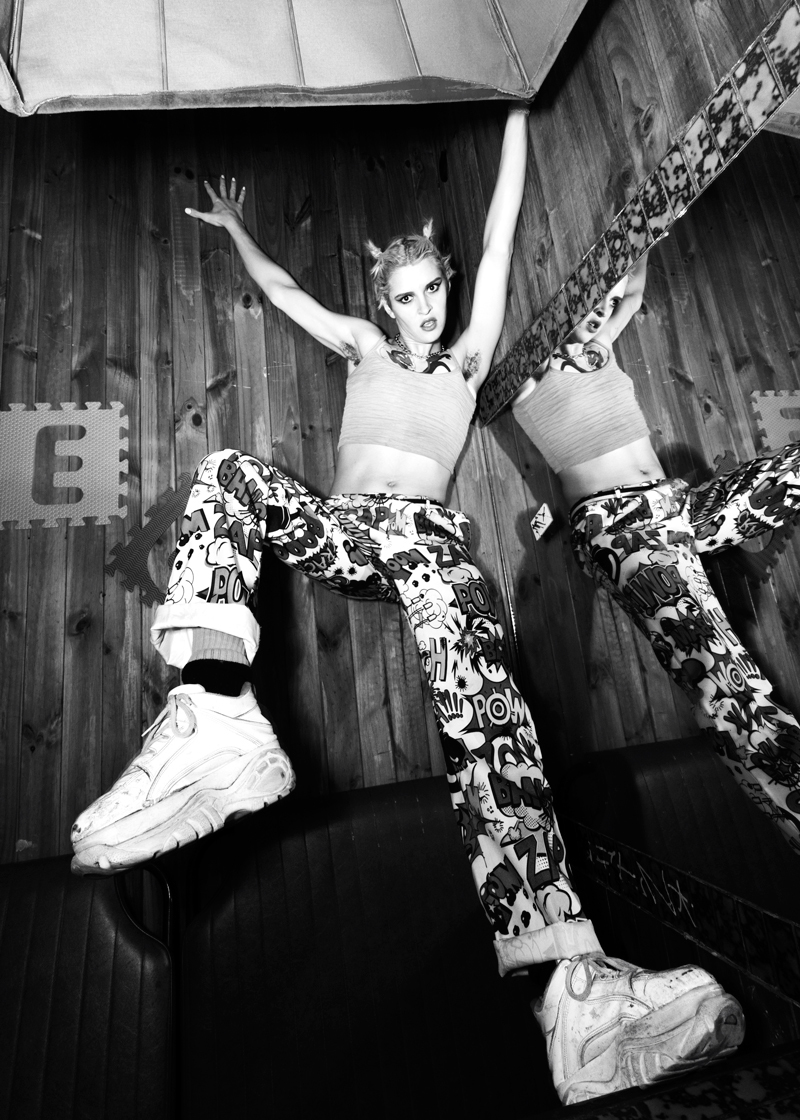
Brooke Powers, 26 , DJ
What does activism mean to you?
I think my activism works best for me as something that is a natural extension of my art output and career, rather than something that’s deliberate. I believe if you want success in your life, you need to help others create the same success. So if I want to create a successful DJ career for myself, I also have to create visibility and space for queer and trans people in the music scene and the world.
How do you advocate for LGBTIQ+ rights in Australia?
When I first came out as trans five years ago, there was hardly any representation for trans people in the world, the music scene, even in Melbourne’s queer community. Since then, I’ve seen our visibility expand dramatically, as well as our representation in the music scene. I think I’ve played a part in this growth. It was really important for me five years ago to create spaces for trans people, particularly trans feminine people, by creating visibility of myself, by organising meetups and creating online spaces. It’s really important for me to be raising the talents of other queer and trans DJs and musicians. That’s a huge drive behind the party I run, Spank! Our goal is to bring extraordinary queer talent to new audiences, and create space for these acts to thrive.
Where do you hope the future of LGBTIQ+ rights will go in Australia?
Access to trans-friendly health care is growing quickly in Victoria, and we are lucky to be in Melbourne right now as this is happening and there are so many people doing such great work in this field. I really hope this can continue to expand, that we can work to make all workplaces, healthcare services, government services and universities places where trans people can be respected, where we’re able to access these services without fear of unintentional (or sometimes very intentional) transphobic abuse.
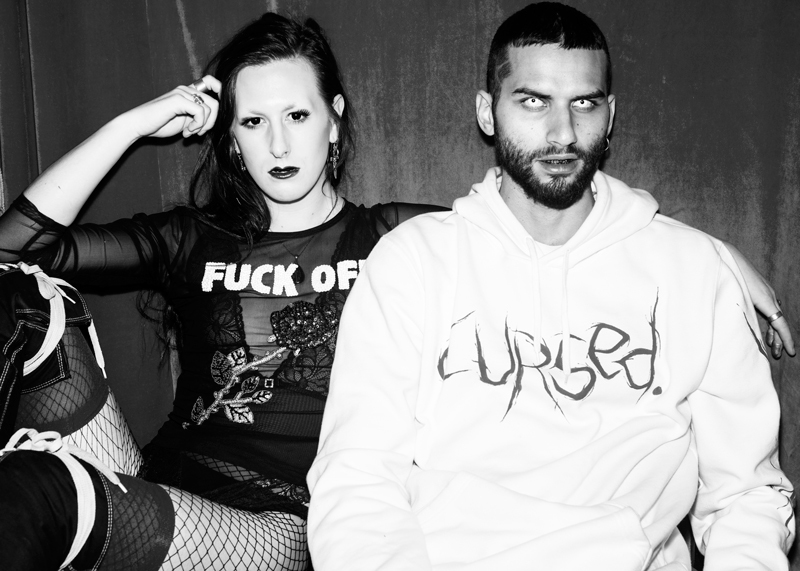
David Murphy, 28 (right), founder of Le Fag club night
What does LGBTIQ+ activism mean to you?
Focusing on building relationships and connections within my community. Playing my part in providing and making as much space as I can for people that have little to no voice and rights, by using my privilege as a white passing, straight passing, cisgender male for them to express themselves and be seen/heard through art and music, so the heteronormative society might listen up and hopefully learn. It’s important to show the many facets of what the queer community are in order for us to grow stronger. What I do with Le Fag is a tiny portion of that.
What is standing in the way of equality the most in Australia?
Building the foundations of this country on the genocide and robbery of Indigenous people’s land. Not fully acknowledging this. So classism and white supremacy.
Where do you hope the future of LGBTIQ+ rights will go in Australia?
I hope it will go into focusing on queer people of colour, the gender diverse and erasing toxic masculinity. People not yelling ‘faggot’ to people on the street would be really cool too.
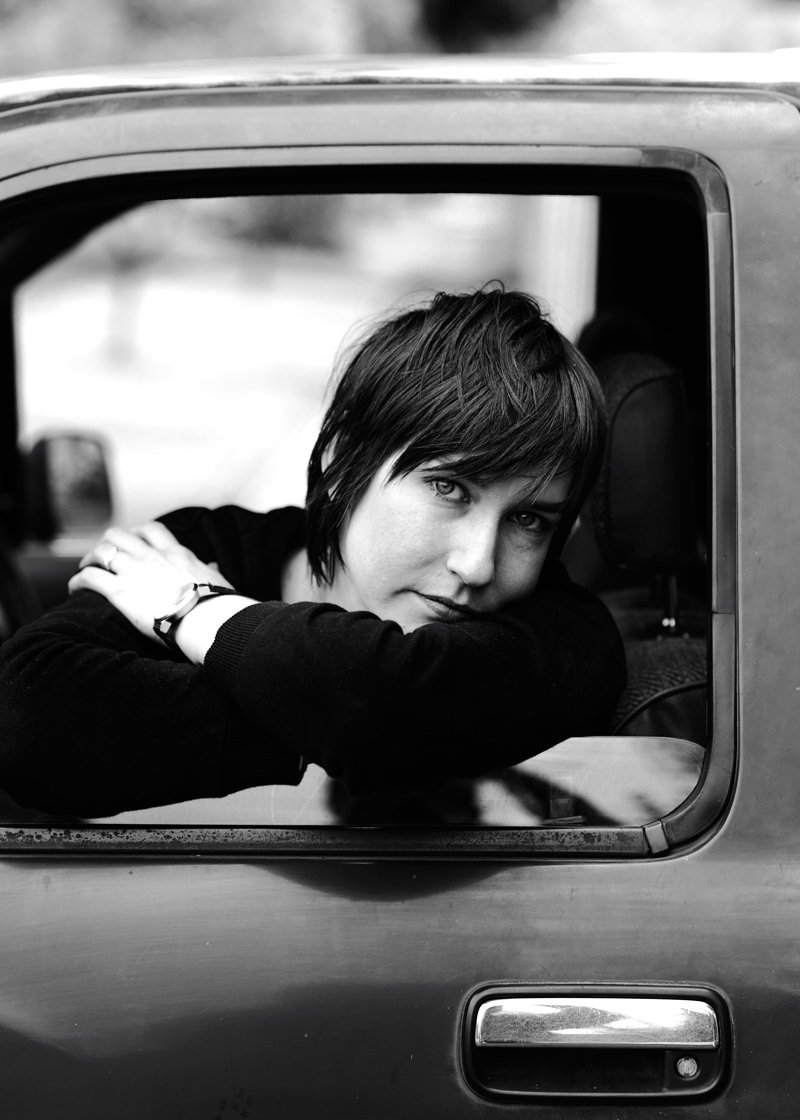
Amy Middleton, 31, founder of Archer Magazine
What initially inspired your activism?
I started Archer Magazine because I wanted to see a media outlet that reported on sexuality, gender, identity and society from an inclusive perspective. I could see gay mags, lesbian mags and predominantly straight mags, but nothing that really spoke to my identity. Additionally, when we are growing up, the belief that we’re somehow abnormal because we don’t look, sound, behave or desire like the people we see reflected in media is super damaging. This misinformation caused me a lot of grief in my teenage years.
How do you advocate for LGBTQI+ rights in Australia?
I use Archer Magazine as a platform to share diverse stories and experiences, but we also work hard to share these voices in a respectful way – this approach is quite unfamiliar to a lot of the media industry. We respect the terms that people want to use, and when they want to use them. We don’t make assumptions about how people identify, and we avoid stereotyping and potentially harmful article topics. Language is really crucial to discussions of identity for a bunch of reasons: we find people we can relate through labels and other language markers.
In your opinion, what is standing in the way of equality the most in Australia?
A culture of care and respect is a huge factor in achieving equality, and representation of individual experience is a crucial contributor. If you form a close bond with someone from a different life situation or background, it becomes harder to discount their experience, or perpetuate their oppression. Equality starts with respect. We need to tap into the human instinct to care for others, and I think sharing diverse stories is super important for this.
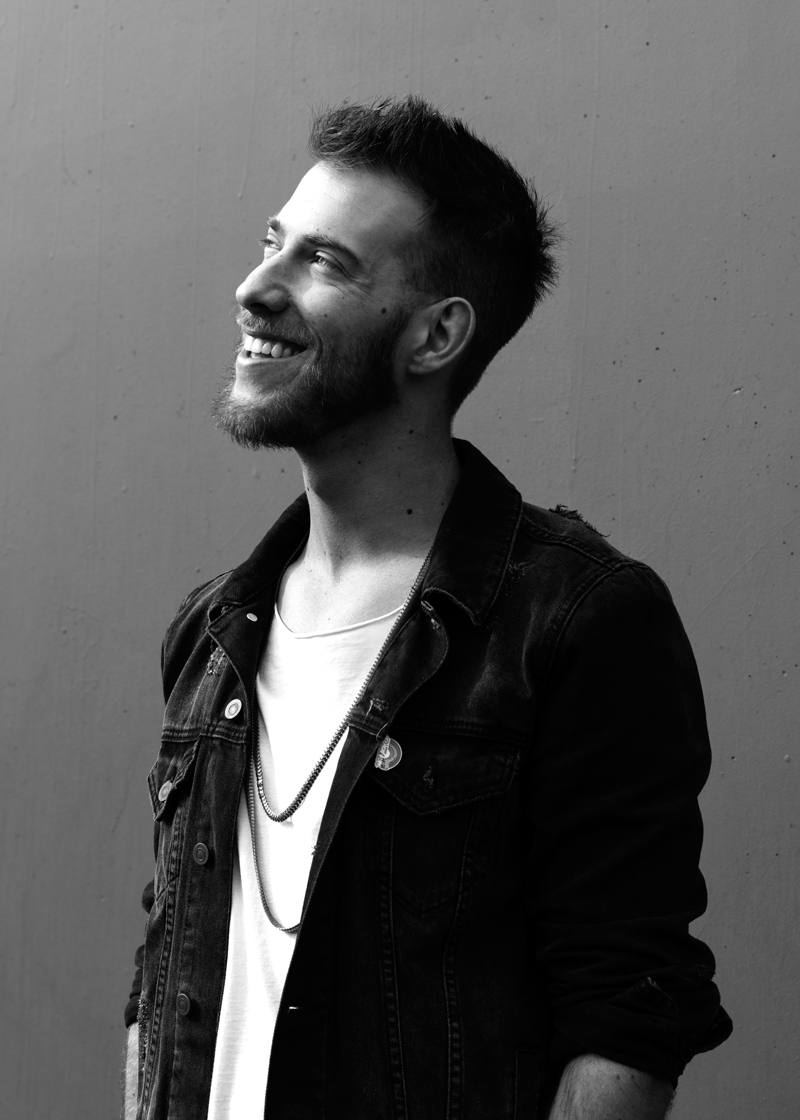
Micah Scott, 28 , CEO of Minus18
What inspired you to fight to change the course of LGBTIQ+ rights in Australia?
Growing up, I really struggled with my queerness. I spent nights on end praying that everything I was feeling would disappear. But when I made my first queer friends at 16, my entire life changed. I remember saying in my head, “Oh my goodness, I’m actually normal.” That was something I’d never felt before. I was so grateful for that defining moment that I really just started to pour my energy into projects that I thought would help create that for other people until we founded Minus18 as a charity for queer youth.
What would you say are your biggest contributions to the course of LGBTI rights in Australia?
Driving the creation of Minus18 as a charity would certainly be up there. Last year we had over 200,000 people Australia wide access our resources and wanting to know how they can support the LGBTI community. Each year we see thousands of teenagers come to Minus18 events looking for connection to other people who are going through similar experiences – that is mega cool.
Where do you hope LGBTIQ+ rights will go in Australia?
The gender binary is over and queerness is taking over — that’s the future that’s starting to take place in Australia. Teenagers are already reporting fewer experiences of feeling ‘exclusively straight’ than previous generations and the way the see gender is way more fluid. Most Australian teenagers have been raised in a world with Tumblr and where LGBT people are a core component of the media they consume. To them discrimination just doesn’t make sense. The future of LGBT rights will be shaped by these people, and we either need to keep up or get out of their way.
Credits
Text Alex Manatakis
Photography Jordan Drysdale
